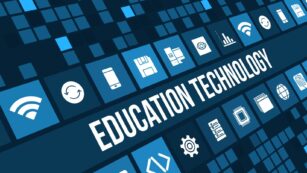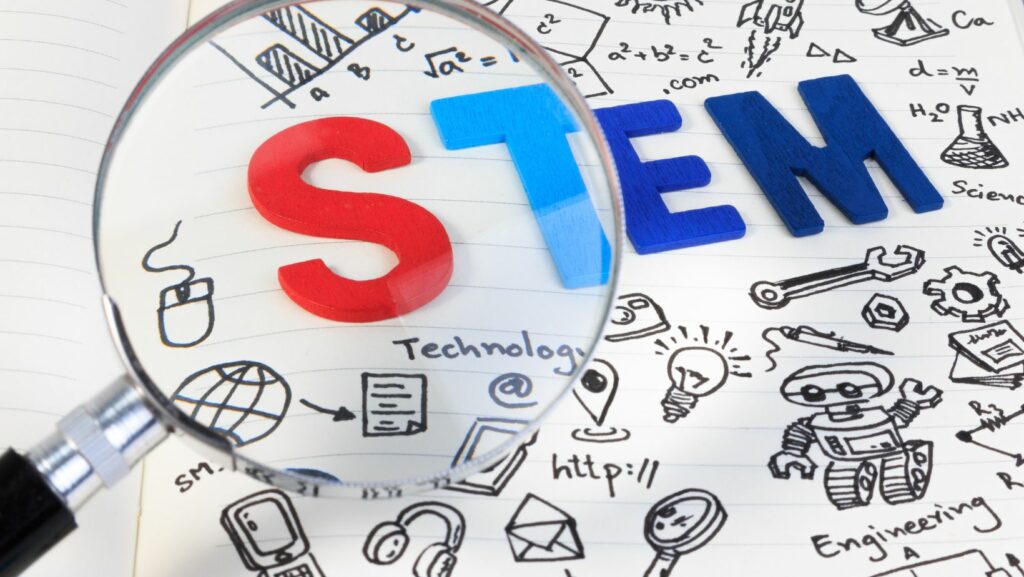In today’s rapidly evolving world, technology plays a pivotal role in shaping the educational landscape. It’s no longer a question of if technology should be integrated into education, but rather how it can be used to enhance learning outcomes. From personalized learning experiences to increased accessibility, technology’s impact on education is profound and far-reaching.
Why Is Technology Important In Education
Technology plays a pivotal role in modern education, transforming how students learn, teachers teach, and how educational content is delivered. The importance of technology in education stems from its ability to provide greater access to information, facilitate personalized learning experiences, and prepare students for a digitally driven world. By integrating advanced tools and platforms into the curriculum, educators can enhance engagement, improve knowledge retention, and equip students with critical twenty-first-century skills.
Bridging the Digital Divide
 Access to technology in education serves as a crucial equalizer among students from diverse socioeconomic backgrounds. By bridging the digital divide, educational technology ensures that all students, regardless of their geographic location or economic status, have access to the same quality of education and resources. Initiatives like providing laptops, tablets, and high-speed internet access to underserved communities help mitigate disparities in academic opportunities. This democratization of educational content fosters a more inclusive learning environment where every student has the opportunity to succeed.
Access to technology in education serves as a crucial equalizer among students from diverse socioeconomic backgrounds. By bridging the digital divide, educational technology ensures that all students, regardless of their geographic location or economic status, have access to the same quality of education and resources. Initiatives like providing laptops, tablets, and high-speed internet access to underserved communities help mitigate disparities in academic opportunities. This democratization of educational content fosters a more inclusive learning environment where every student has the opportunity to succeed.
Furthermore, online educational platforms and digital libraries offer a plethora of resources, making learning more accessible to students with disabilities. Adaptive technologies, such as screen readers and voice recognition software, enable students with visual or auditory impairments to participate fully in the educational process. Thus, technology not only narrows the gap between diverse student populations but also promotes an inclusive education system that accommodates individuals with various needs and learning styles.
Preparing Students for the Future
Technology integration in education is essential for preparing students for their future careers, many of which will demand proficiency in digital skills and an ability to adapt to rapidly changing technologies. Education technology, from basic computer software to advanced programming tools, familiarizes students with the digital tools and platforms they will encounter in their professional lives.
 Incorporating technology into the curriculum helps students develop critical thinking, problem-solving, and collaborative skills, ensuring they are better equipped for the challenges of the twenty-first-century workforce. Exposure to educational technologies also sparks creativity and innovation, encouraging students to think outside the box and develop solutions to complex problems.
Incorporating technology into the curriculum helps students develop critical thinking, problem-solving, and collaborative skills, ensuring they are better equipped for the challenges of the twenty-first-century workforce. Exposure to educational technologies also sparks creativity and innovation, encouraging students to think outside the box and develop solutions to complex problems.
Educational institutions that prioritize technology integration lay the foundation for lifelong learning. By teaching students how to effectively use and leverage technology for research, communication, and collaboration, educators are ensuring that their students are not just consumers of technology but are also capable of contributing to its advancement.
Enhancing Learning Experiences
 Technology plays a crucial role in enhancing educational experiences by facilitating interactive and immersive learning environments. Incorporating digital tools into the classroom allows students to engage with content in dynamic ways, such as through virtual simulations, interactive whiteboards, and educational apps. These innovations make learning more appealing and accessible, catering to various learning styles and preferences. Additionally, technology enables educators to implement personalized learning paths, adjusting the pace and complexity of lessons to meet individual student needs. As a result, students don’t just learn more effectively; they also develop essential digital skills, preparing them for the demands of the modern workforce. In essence, technology’s importance in education lies not only in its ability to improve access and engagement but also in its power to transform traditional learning experiences into ones that are rich, interactive, and tailored to the twenty-first-century learner.
Technology plays a crucial role in enhancing educational experiences by facilitating interactive and immersive learning environments. Incorporating digital tools into the classroom allows students to engage with content in dynamic ways, such as through virtual simulations, interactive whiteboards, and educational apps. These innovations make learning more appealing and accessible, catering to various learning styles and preferences. Additionally, technology enables educators to implement personalized learning paths, adjusting the pace and complexity of lessons to meet individual student needs. As a result, students don’t just learn more effectively; they also develop essential digital skills, preparing them for the demands of the modern workforce. In essence, technology’s importance in education lies not only in its ability to improve access and engagement but also in its power to transform traditional learning experiences into ones that are rich, interactive, and tailored to the twenty-first-century learner.
Personalizing the Educational Journey
Technology plays a crucial role in customizing the educational journey for each learner. By incorporating adaptive learning technologies and educational software, educators can create a personalized learning environment that meets the unique needs and pace of every student. This customization enhances the learning experience, making it more engaging and effective for students with diverse learning styles. Furthermore, technology enables the assessment of individual progress in real-time, allowing for adjustments in teaching methods and learning paths to better serve each student’s educational goals. In essence, technology’s importance in education extends to personalizing learning, ensuring that students not only have access to information but also receive it in a way that optimizes their individual learning potential.

